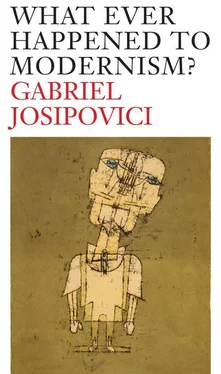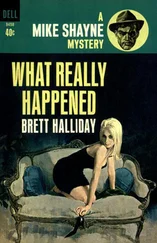Again, the question is not why she should have written as she did, but what has happened to our culture that serious and intelligent and well-read reviewers, not to speak of prize-winning novelists and distinguished biographers, many of whom have studied the poems of Eliot or the novels of Virginia Woolf at university, should so betray their calling as to go into ecstasies over books like Némirovsky's while, in their lifetimes and now after their deaths, ignoring the work of novelists like Claude Simon, Georges Perec, Thomas Bernhard and Gert Hofmann.
To answer this would require a sociologist, perhaps, and another book. But a few points are worth making. The first is that though, as the example of Némirovsky shows, we are not dealing here with a purely English phenomenon, there is a greater resistance to or lack of awareness of Modernism right across the board in England than there is in the rest of Europe and even in America. Modernism has its friends over here but they are what the art historian T.J. Clark has called ‘false friends’, that is, those who defend a version of Modernism that is at once crude and superficial and therefore make it even more difficult to grasp what it truly is. A case in point is a recent book by the young English novelist Adam Thirlwell, Miss Herbert , which deals with many of the themes and authors I have been writing about here, but seems (to me) consistently to misrepresent and misunderstand them.
I have already had occasion to quote Thirlwell on Don Quixote , which he reads as ‘the juxtaposition of chivalrously good intentions with the prose of real life’. This, I suggested, is to misunderstand the questions raised by the novel about truth and authority and especially the authority of the novelist himself. For Cervantes, the question of what is ‘real life’ and how an artist today (his today and our today) can claim to deal with it is a fundamental concern; for Thirlwell it isn't an issue. Thus his misreading of Cervantes is symptomatic of his whole book. What he takes both the novel and Modernism to stand for, as far as I can see, is an unflinching realism which resolutely refuses the consolations of poetry and Romanticism. He quotes Flaubert: ‘I want a touch of bitterness in everything — always a jeer in the midst of our triumphs, desolation even in the midst of enthusiasm’, and remarks: ‘That last sentence is Flaubert's description of his new literary form: the novelistic scene, the anti-lyrical poem.’
The touchstone of this new form, a form which will at last ‘be true to the mess which is real life’, is the telling detail: the faint scar on a forehead, the stair carpet turned up at one corner. Thirlwell purrs with pleasure when he finds it in Diderot or Flaubert, in Tolstoy or Nabokov. It is the detail which shows up the impurity of grandiose feelings, which does the job of the novelist and the Modernist, deflating the sentimental, the romantic, the serious. ‘The most radical novels find comedy in places which people do not want to see as comic at all — like sex, or concentration camps.’ This is meant to be shocking but it is merely in bad taste. For Hitler and the camps seem actually to be immune to comedy, as the films Chaplin and Roberto Benigni devoted to those subjects, The Great Dictator and Life is Beautiful , merely serve to demonstrate. Even a great comic novel like Catch22 only works, as David Daiches once pointed out, because it is set at a moment in the Second World War when the Allied victory was already assured.
The notion that the new reality inhering in novels depends on their attention to detail fails to distinguish between ‘reality’ and what theoreticians call ‘the reality-effect’. In fact Thirlwell uses the two terms indiscriminately. But putting a faint scar on a face or alerting us to the fact that the carpet is turned up in the corner, like describing the smell of sweat and semen during the act of sex, no more anchors the novel to ‘reality’ than writing about stars in the eyes of the beloved. The novel is still made up of words, is still the product of a solitary individual, inventing scars, carpets, smells or stars. Of course we warm to a novelist who surprises us with his attention to detail, though as much or more depends on the way it is done, the style, rather than the detail itself, as when Dickens has Sam Weller say: ‘Look at these here boots — eleven pairs o'boots; and one shoe as b'longs to number six, with the wooden leg’, or Proust writes of Swann's arrival at a grand party and the footman's taking his hat and gloves: ‘As he approached Swann, he seemed to be exhibiting at once an utter contempt for his person and the most tender regard for his hat.’ Too often though, especially in Flaubert and the Goncourts, detail seems to be there as a way of convincing us (and the authors themselves?) that what we are dealing with is the stuff of life. Too often the attention to detail in modern novels reminds me of what Clement Greenberg once said of nineteenth-century academic painting: ‘It took talent — among other things — to lead art that far astray. Bourgeois society gave these talents a prescription, and they filled it — with talent.’
Thirlwell's failure to distinguish reality and the ‘reality-effect’ is symptomatic of his — and his English colleagues' — failure to grasp what was obvious to every artist I have been looking at in the course of this book, that what is at issue is reality itself, what it is and how an art which of necessity renounces all claim to contact with the transcendent can relate to it, and, if it cannot, what possible reason it can have for existing. This is not an issue for Thirlwell. ‘The problem of living in Brazil, or Cuba, or Russia, and wanting to write a novel’, he says grandly, ‘is the same problem as living in France, or Britain, and wanting to write a novel. The problem is universal: it is about finding a way of describing real life.’
Thirlwell and his mentor Craig Raine, for all their waving of Modernist credentials, seem as confident as Jane Austen that the ground they stand on is solid. What I have tried to suggest in the course of this book is that, for some artists at least since the time of Dürer, and for any serious artist since 1789, the ground has been anything but solid. And that if this is the case then it is not enough to examine the surface of a work, to admire the artist's skill in doing this or that. What we need to do is to see it from the point of view of the artist — not of course Picasso or Stravinsky or Eliot the man but the maker. The reason for this is that the work itself asks for such a reading. Don Quixote , like Prufrock or Kafka's ‘The New Advocate’, is not just ‘about’ the juxtaposition of romantic beliefs and the world's reality; it recognises itself as implicated in an impossible struggle to reconcile these two, and it implicates the reader.
But our English pseudo-Modernists cannot or will not see this. They pride themselves on their realism, which means their beady-eyed refusal to be taken in by highfalutin language and all the temptations of Romanticism. Love is not about stars in your eyes, it is about the itch of sex; death is not a consummation devoutly to be wished but a dingy and degrading experience; art is there not to make you rejoice but to rub your nose in the dirt. As well as thanking, in the course of his book, his old tutor Craig Raine, Adam Thirlwell thanks Julian Barnes, and Barnes's latest book, Nothing to be Frightened of , perfectly exemplifies this mindset. Shocked by the death of his parents and his realisation that, at sixty, he has not all that much time to go himself, Barnes spends 250 pages telling himself and us how frightened he is at the prospect. What is terrifying about old age is the loss of control, and this is particularly difficult for Barnes because he seems to have inherited his mother's need to be in control at all times and never to be taken in by sentiment, though he recognises the ambiguous roots of such feelings. ‘I was an idealistic adolescent’, he writes, ‘who swerved easily into suspicion when confronted with life's realities. My kicks were those of a disheartened Romantic.’ This is insightful, but he doesn't follow it up. Rather, he seems happy to accept himself as a clear-eyed realist. ‘I hope, Barnes’, one of his teachers says to him, ‘that you're not one of those bloody back-row cynics.’ ‘Me, sir? Cynic, sir? Oh no — I believe in baa-lambs and hedgerow blossoms and human goodness, sir’, the grown-up Barnes responds across the years. But this kind of smartness soon palls. It's bright but it tries too hard to shock, like the joke which he likes so much he repeats it: ‘Alzheimer's? Forget it.’ Barnes, like Thirlwell and Raine, prides himself on his realism, which he likes to think brings him closer to his beloved Flaubert. But the trouble with this English brand of Realism is that it yields an impoverished view of life and leaves Barnes prey to all the fears he has striven to repress.
Читать дальше












